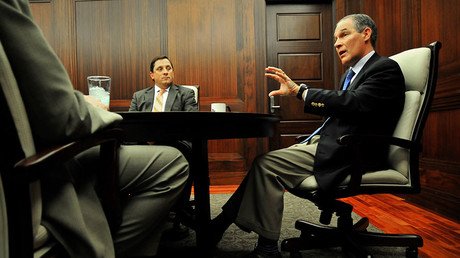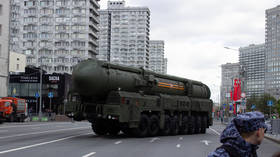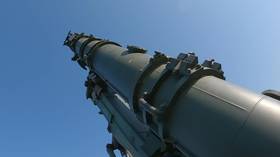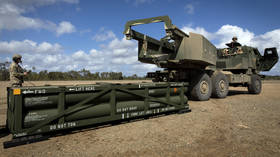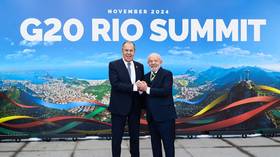Mining in Alaska may return as EPA scraps Obama-era regulations
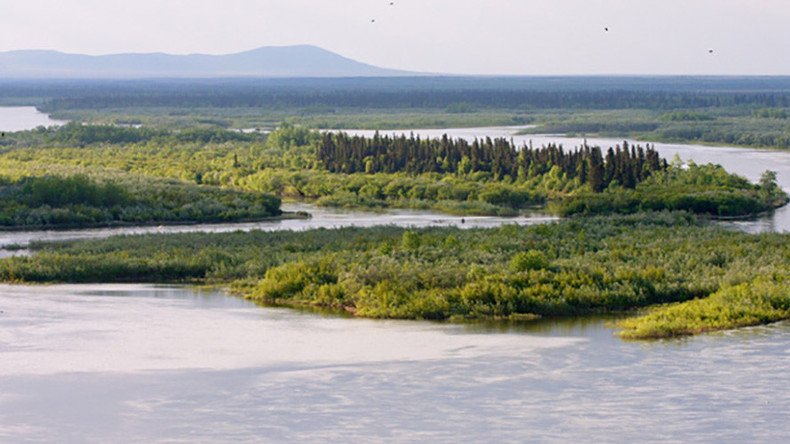
A company with a mining operation in Alaska has reached a settlement with the EPA, reversing restrictions implemented under former President Barack Obama that declared the mines would render an “unacceptable adverse effect” on the area.
On Friday, the Environmental Protection Agency (EPA) announced that they settled a case with the Pebble Limited Partnership relating to the EPA's prior work involving gold and copper mining operations in the Bristol Bay watershed in Alaska.
Under the terms of the settlement, the EPA will begin withdrawing restrictions on development in the Bristol Bay region, and Pebble Limited Partnership will be able to apply for a Clean Water Act (CWA) permit from the US Army Corps of Engineers.
“We are committed to due process and the rule of law, and regulations that are ‘regular,’” EPA Administrator Scott Pruitt said, according to the press release. “The agreement will not guarantee or prejudge a particular outcome, but will provide Pebble a fair process for their permit application and help steer EPA away from costly and time-consuming litigation.”
Tom Collier, CEO of Pebble Limited Partnership, said the settlement will allow them to restart the process to develop mining operations in the region, which, he said “could be an economic engine for decades to come.”
“This settlement represents a major step forward for the Pebble Project. It allows us to start advancing Pebble to the next phase of development and provides us with the opportunity to initiate the normal permitting process for this project,” Collier said in a press release.
In 2010, the native tribes requested that the EPA protect the Bristol Bay watershed from the development of Pebble Mine under the Clean Water Act, leading to a three-year study by the agency. The study was only meant to assess the potentially destructive impacts that mining would have on the ecosystem of Bristol Bay.
In a 2014 news release, the EPA stated that the results of the study led them to conclude that the Pebble Mine would “likely cause irreversible destruction of streams that support salmon and other important fish species, as well as extensive areas of wetlands, ponds and lakes.”
To learn @EPAScottPruitt & Pebble Mine are making backroom deals against Bristol Bay is fundamentally wrong. A Risk for all. #nopebblemine
— United Tribes of BB (@UnitedTribes_BB) May 11, 2017
According to the EPA’s own website, the Bristol Bay watershed supports the largest sockeye salmon fishery in the world, with an average of 37.5 million fish, or half the global abundance. The EPA also states that the area supports 14,000 full and part-time jobs.
An economic report released by researchers at the University of Alaska Institute of Social and Economic Research found that the area’s commercial salmon fishery generates approximately $1.5 billion a year, making it the most valuable wild salmon fishery in the world.
"Bristol Bay is an extraordinary natural resource, home to some of the most abundant salmon producing rivers in the world," said Dennis McLerran, EPA Regional Administrator for the pacific northwest region. "The science EPA reviewed paints a clear picture: Large-scale copper mining of the Pebble deposit would likely result in significant and irreversible harm to the salmon and the people and industries that rely on them."
At that time, the EPA estimated the mine would require a pit up to one mile deep and more than two-and-a-half miles wide, which would make it the largest pit every constructed in North America. The mine would also require three or more tailings dams as high as 650 feet in order to store all the mining waste.
Largest onshore oil discovery in US in decades claimed by companies in Alaska https://t.co/FP08gch8HSpic.twitter.com/tSC58D2vLW
— RT America (@RT_America) March 11, 2017
The EPA also received more than 850,000 requests from citizens and companies that asked the EPA to protect the area. Due to their findings and the outcry from the public, the EPA placed the area under section 404(c) of the Clean Water Act, which authorizes the EPA to prohibit or restrict activities if it is determined to have an “unacceptable adverse effect'' on the water supply.
Pebble Limited Partnership filed a lawsuit against the EPA in 2014 over their decision to block the operations. Those restrictions were lifted by the settlement Friday. The EPA said the company has 30 months to submit a normal CWA Section 404 permit application to the US Army Corps of Engineers.
Bristol Bay is home to 25 federally recognized tribal governments, many of them belong to the United Tribes of Bristol Bay, which said the decision to reverse the regulations was due to “the petty, partisan politics of our day.”
“Our region couldn’t be more united in our effort to protect Bristol Bay from the Pebble Mine,” United Tribes of Bristol Bay Executive Director Alannah Hurley stated in a press release. “Pebble may have its short-term victory today. But, we as indigenous people, have been on this land for over 10,000 years and we’re not going anywhere.”
Alaska Rep. Bryce Edgmon (D-Dillingham) opposes the decision, saying the current administration “seems bound and determined to undermine all the good work of the EPA, the tribes, and the people of Bristol Bay to protect the pristine environment of the region and the largest sockeye salmon run on earth,” according to a press release.
“The threat of pollution from the Pebble Mine is real, which is why the EPA imposed protections in the first place,” Edgmon continued. “Resource development should not be more important than protecting the environment and sustainable resources like the sockeye salmon that sustain the economy and the people I represent.”
